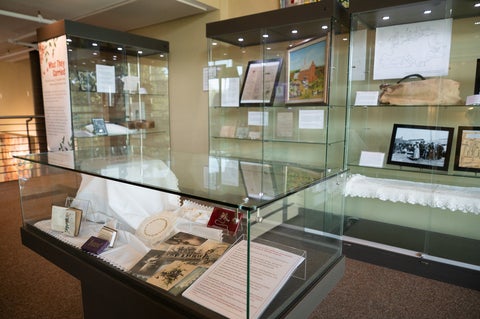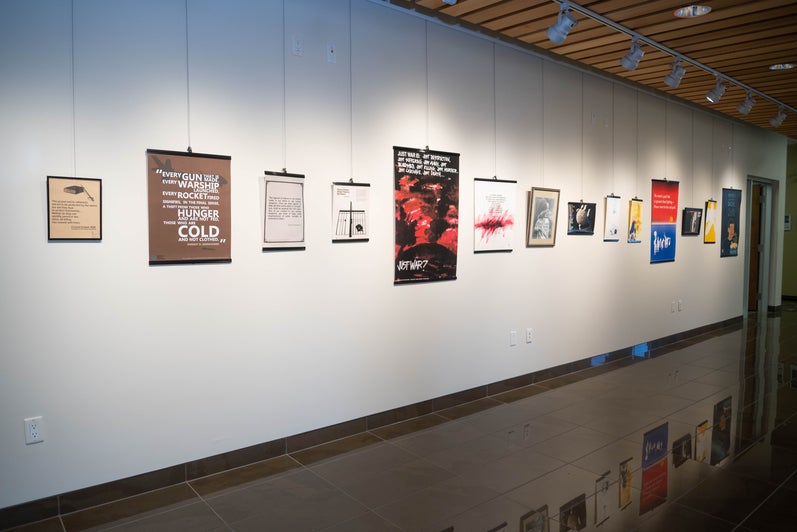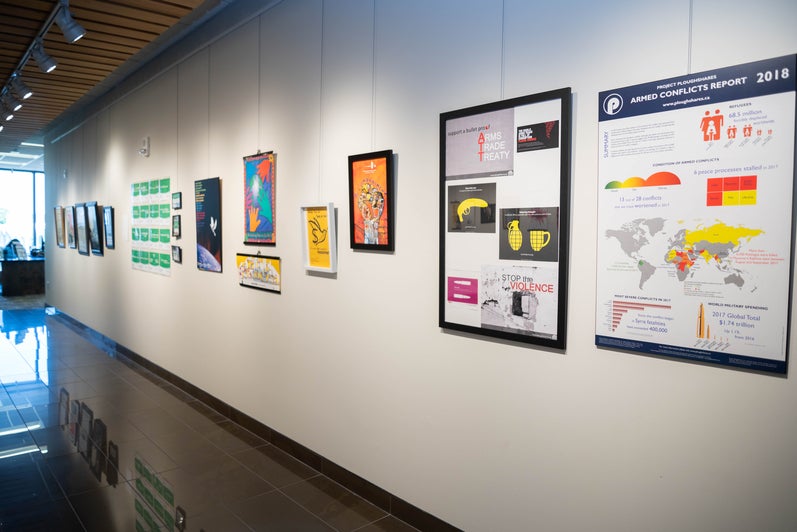Mennonite Heritage Week 2024
The second week of September is Mennonite Heritage Week. At Conrad Grebel University College in Waterloo, Ontario, this week is an occasion to share about Mennonite history and culture. Offering several ways to engage with Mennonite history, the College is hosting a book launch this week has two Mennonite-themed exhibits on display.

In his new book, Radicals and Reformers: A Survey of Global Anabaptist History, historian and Grebel professor Troy Osborne reflects on the ways that Anabaptists have defined their identity and lived out their faith in new environments and in response to a variety of different contexts. “From renegade gatherings of Christian believers in the 1500s to a global communion of more than 2.1 million members, the Anabaptist-Mennonite movement has been marked by faithfulness and failure, continuity and conflict, radicalism and reformation,” described Osborne’s publisher, Herald Press. “In this engaging history, Radicals and Reformers traces the origins and development of the Anabaptist and Mennonite movements from their beginnings in Europe through their spread across the globe. This book provides an overview of how Mennonites from Zurich to Zimbabwe have adapted to or resisted the world around them.” Hosted by the Institute of Anabaptist and Mennonite Studies, the book launch will take place on September 12 at 4:00 PM in room 2202 at Grebel.
A core Mennonite value is the pursuit and building of peace. A pop-up exhibit in the Grebel Gallery invites viewers to reflect on the messaging and design work that goes into inspiring peace action. "Signs of Peace: A Retrospective of Peace Posters" features more than 50 posters from organizations and initiatives connected to the Kindred Credit Union Centre for Peace Advancement, including the archives of Mennonite Central Committee, Project Ploughshares, and the Mennonite Archives of Ontario. On display until October 31 and curated by Paul Heidebrecht, the exhibit confronts themes of war, weapons, displacement, hunger, justice and hope.

The Mennonite Archives of Ontario exhibit space, located on the 3rd floor landing outside the Milton Good Library.
From 1923-1930, 21,000 Mennonite immigrants from the Soviet Union ("Russlaender") arrived in Canada seeking respite from war and turmoil. They carried what most immigrants carry: portable reminders of home and family, recipe books and other forms of practical knowledge, songbooks to sustain faith and culture, and painstakingly-acquired documents vital for crossing borders. A self-guided exhibit called “What They Carried,” located in the Mennonite Archives of Ontario Gallery at Grebel, displays some of these artifacts.
Other ways to get a taste of Mennonite heritage include taking a tour of Brubacher House museum on the University of Waterloo’s north campus, visiting the Milton Good Library to view works of art on display by Mennonite artists or on Mennonite themes, or checking out the series of recorded lectures from the Bechtel Lectures in Anabaptist-Mennonite Studies.





